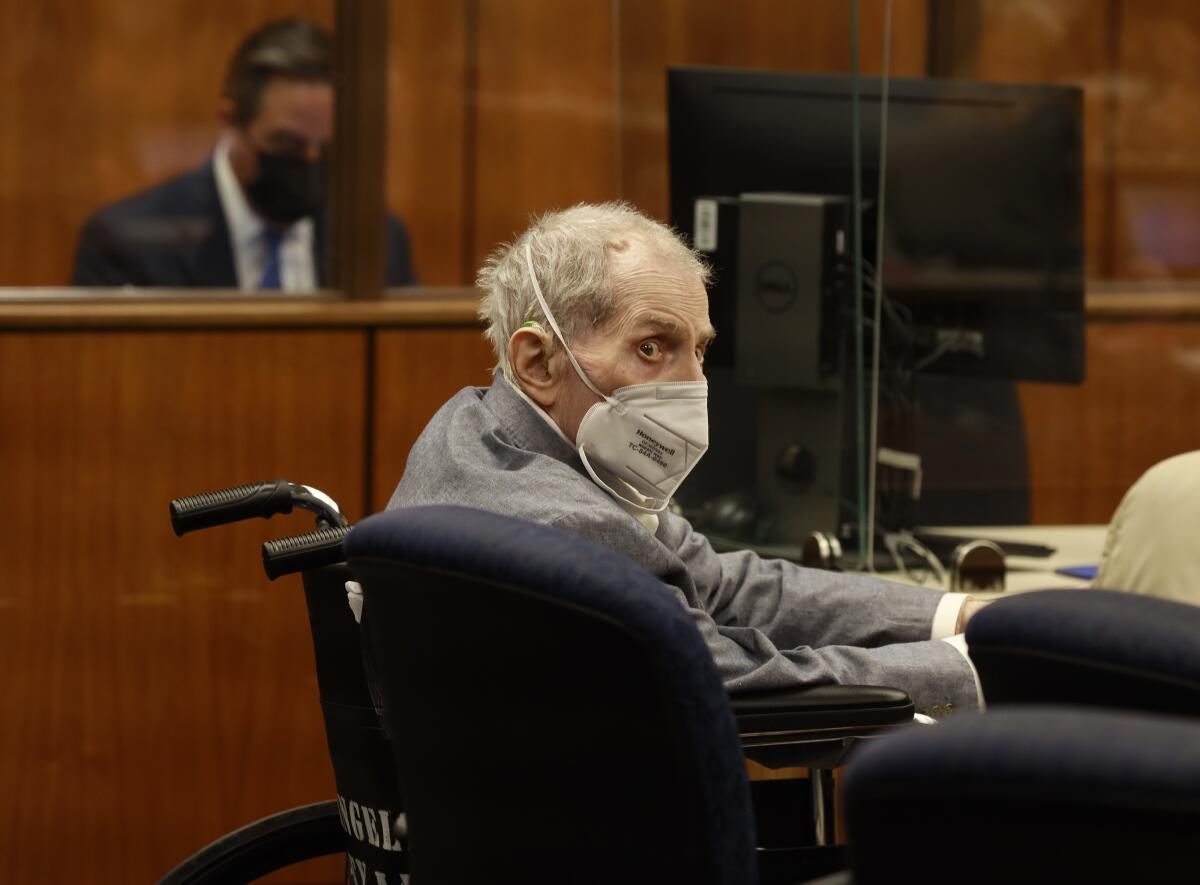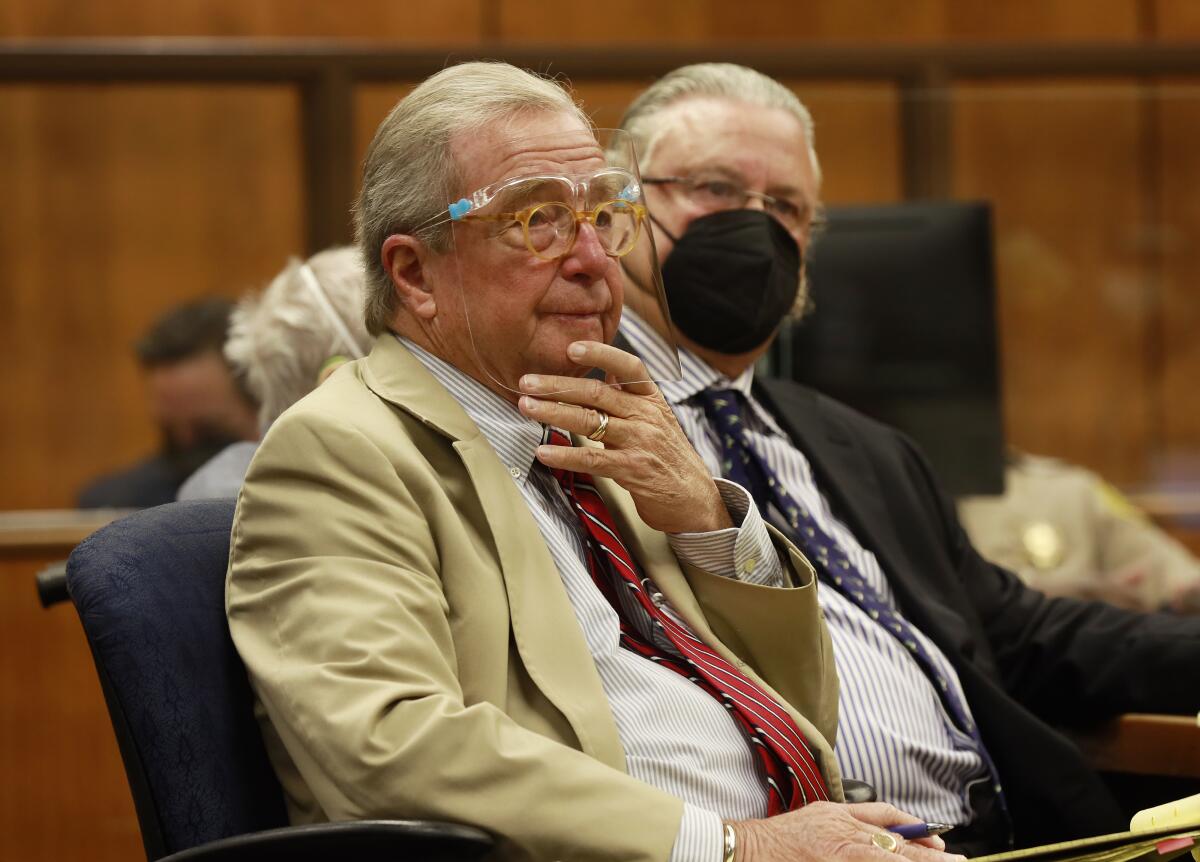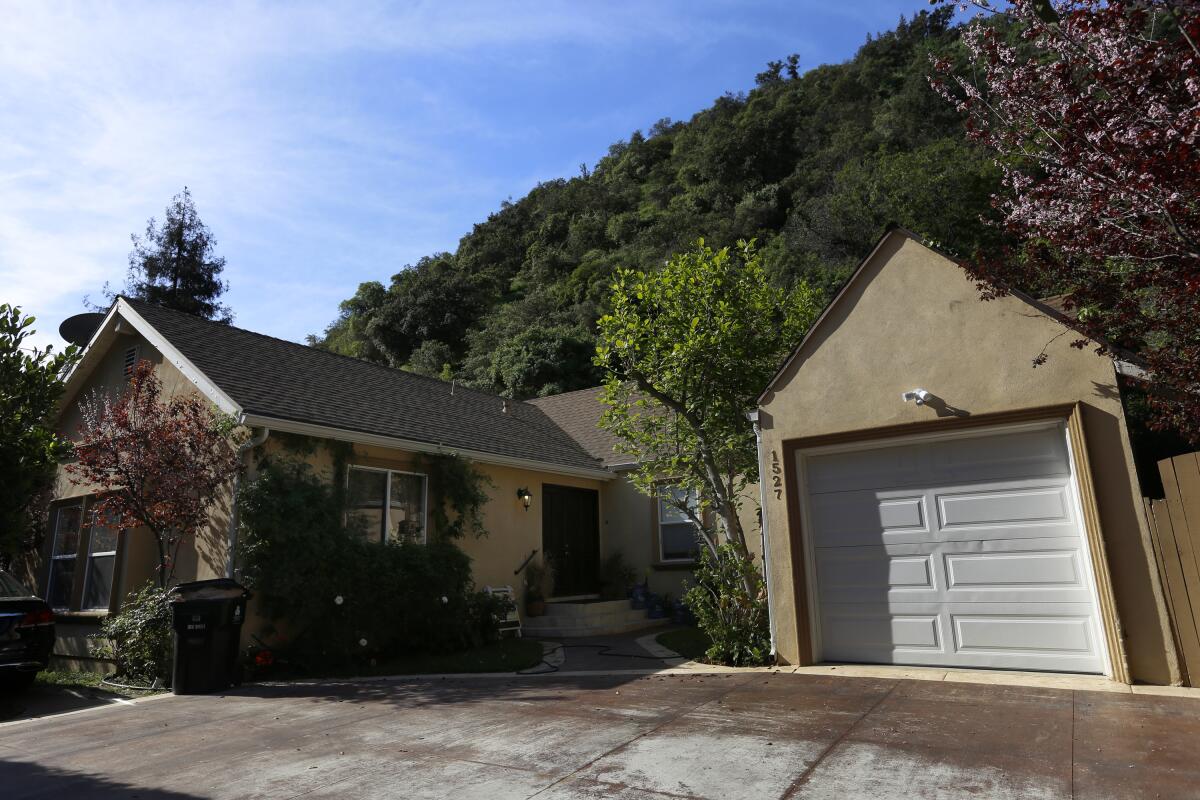Jury begins deliberations in Robert Durst murder trial

A jury began deliberating Tuesday whether to convict Robert Durst of murdering his best friend, a killing that the prosecution argued was committed to cover up an earlier crime to which his friend was a witness: the death of Durst’s wife, who vanished nearly four decades ago and has never been found.
The jury’s verdict would bring to a close a nearly five-month trial and settle many of the suspicions that have shadowed Durst, 78, heir to an enormous fortune derived from his family’s Manhattan real estate portfolio, for half of his life.
Jurors filed out of the courthouse Tuesday afternoon without reaching a verdict.
Durst’s wife, Kathie, disappeared in 1982. His best friend, Susan Berman, was found dead in her home in 2000, shot once in the back of the head.
In 2001 the police found pieces of Durst’s next-door neighbor, Morris Black, washed ashore on Galveston Bay in Texas. Durst has admitted dismembering the body after Black was killed in what Durst described as a struggle over a gun.
For the last five months, Los Angeles County prosecutors have made the case that Durst subjected his wife to emotional and physical abuse before killing her in 1982. After her death, Berman, acting at Durst’s behest, impersonated Kathie Durst in a call to the medical school that she was attending, telling a dean she was too ill to go to class, according to the prosecution.
Deputy Dist. Atty. John Lewin told the jury that given Durst’s tendency to lie, he had likely “twisted the truth” — telling Berman his wife had died in some type of accident — “to get Susan to help him.”
Two decades later, authorities revived the investigation into his wife’s disappearance, and Berman told Durst she had been contacted by the police. Durst “decided, you know what, that’s a loose end I’ve got to tie up,” Lewin argued to the jury.
Durst is charged with murdering Berman, 55, in her Benedict Canyon home. He also faces special circumstance allegations of killing a witness and lying in wait.
Durst, Lewin argued, is “not some nut job serial killer who goes around killing for the thrill of it,” but a calculating man who resorts to murder when he believes he has no other way of suppressing the truth.
“For Bob Durst, murder is not his first option,” he told the jury. “Murder may not be the second option, it may not be his third option. But in the end, pushed into a corner, murder is an option for him.”
Durst’s lawyers, Dick DeGuerin and David Chesnoff, argued last week and Monday that the premise on which the prosecution’s case rests — that Durst killed his wife — wasn’t supported by the months of testimony and other evidence shown to the jury.
Berman, Chesnoff said, was “a witness to nothing.”

The prosecution, Chesnoff said, has asked the jury to elide the gaps in its case, to “make leaps and inferences” and piece together the disjointed fragments of aging memories and gory photographs to arrive at a guilty verdict.
“It’s just, ‘Throw it against the wall, and something will stick,’” he said. “But that doesn’t count in a trial, not in California, not in the United States of America.”
DeGuerin acknowledged that Durst’s treatment of his wife, whom he physically and emotionally abused, was “atrocious.” DeGuerin also conceded that Durst was made to look “really bad” on the witness stand, from which he was cross-examined for nine days.
It was clear from Durst’s testimony, his lawyer said, that his “compass don’t point north. He’s unusual.”
But dislike, even hatred for him, or the impression that he lied on the witness stand, “doesn’t substitute for evidence … that he killed Susan Berman,” DeGuerin said.
Durst testified he flew to California for a planned “staycation” with Berman in December 2000. When he let himself into her house, using a key she had lent him, he found her body and panicked, he testified. Unable to call the police using Berman’s landline, Durst said, he wrote a note to the Beverly Hills Police Department, telling them of a “cadaver” at Berman’s address.

Shortly before Berman’s death, Durst, whose family owns some of Manhattan’s most iconic and valuable buildings, had sent her two checks totaling $50,000. Prosecutors implied that Berman, having grown destitute near the end of her life, was leveraging a last asset — her knowledge of Kathie’s death and the cover-up she arranged — to lean on Durst for money.
Chesnoff said the checks were merely gifts to help a friend who was broke. “What murderer gives his victim $50,000 and then tells the police where to find the body?” he asked.
Chesnoff conceded that the defense couldn’t explain every mystery in his client’s curious life. But “we don’t have to prove Bob’s innocence,” he said. “We have no burden. They” — and he pointed to the prosecutors sitting behind him — “do.”
Lewin urged the jury to examine the story Durst himself had offered over 14 days on the witness stand. Taken at his word, Durst’s wife disappeared, and he was the last person to have seen her alive. His best friend was murdered, and he was the one who found her body. His neighbor in Texas pulled a gun on Durst, was killed during the ensuing struggle and was eventually dismembered by Durst.
“That’s a lot of bad luck,” Lewin said. “Or is it over 40 years of undeserved good luck?
“Do not let this narcissistic psychopath,” Lewin said, pointing at Durst, his wizened frame hunched in a wheelchair, “get away with what he has done.”
More to Read
Sign up for Essential California
The most important California stories and recommendations in your inbox every morning.
You may occasionally receive promotional content from the Los Angeles Times.










